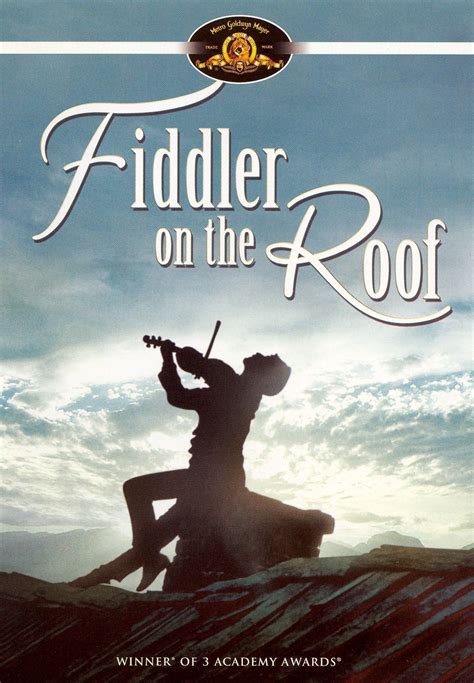Fiddler on the Roof
directed by: Norman Jewison, year: 1971
actors: Topol, Norma Crane, Leonard Frey, Molly Picon, Paul Mann
actors: Topol, Norma Crane, Leonard Frey, Molly Picon, Paul Mann

Description:
Fiddler on the Roof is a 1971 musical film that explores the life of Tevye, a Jewish peasant in pre-revolutionary Russia. As a father of five daughters, Tevye struggles to maintain his cultural and religious traditions amidst external pressures and changing societal norms. The film delves into themes of family, love, and the clash between tradition and modernity, as Tevye faces family disapproval and the challenges brought about by his daughters' marriages.Keywords:
Family Disapproval, Musical, Drama, Family, Tradition, DisapprovalWhat is the story behind Fiddler on the Roof?
"Fiddler on the Roof" is a musical set in the early 20th century in the small Jewish village of Anatevka, Russia. It follows Tevye, a poor milkman, who struggles to maintain his family's traditions amidst social upheaval and changing cultural norms. Tevye faces challenges as his three daughters seek love and independence, choosing partners against his wishes. The title symbolizes the delicate balance of tradition and change. The story ultimately explores themes of family, faith, and resilience in the face of adversity, culminating in the family's displacement due to anti-Semitic forces.
What is the famous line from Fiddler on the Roof?
One of the most famous lines from "Fiddler on the Roof" is the opening phrase, "Tradition!" This line encapsulates the central theme of the musical, which explores the importance and challenges of maintaining cultural and familial traditions in the face of changing social norms. The character Tevye frequently reflects on the role of tradition in his life and the lives of his daughters, highlighting the tension between upholding customs and embracing new ideas.
What is "fiddler on the roof" a metaphor for?
In "Fiddler on the Roof," the "fiddler on the roof" serves as a metaphor for the precarious balance of tradition and change in life. The fiddler represents the struggle of maintaining cultural identity amidst the upheavals and challenges faced by the characters, particularly Tevye, as they navigate societal pressures and personal desires. This image illustrates the delicate nature of their existence, where they must balance their heritage with the inevitable changes brought by modernity and external forces.
Why did the Jews leave Fiddler on the Roof?
In "Fiddler on the Roof," the Jewish community of Anatevka faces increasing persecution and anti-Semitic pressures, leading to their decision to leave. The Russian authorities issue an edict that forces them out of their homes, forcing Tevye and his family, along with other villagers, to seek a new life elsewhere. The departure symbolizes the broader struggles of Jewish communities during that time, reflecting themes of tradition, loss, and the search for a place to belong amidst adversity.
Explore More Categories:
Conscientiousness Prostitution Romantic Comedy Drama Career Challenges Literary Adaptation Duty Drama Comedy Overpopulation Cybernetics Captivity Psychological Games Suburbia Nasa Royalty Community Action Crime Thriller Escapism Innovation Paradise Metafiction Space Exploration Social Realism Australian Film Fairy Tale